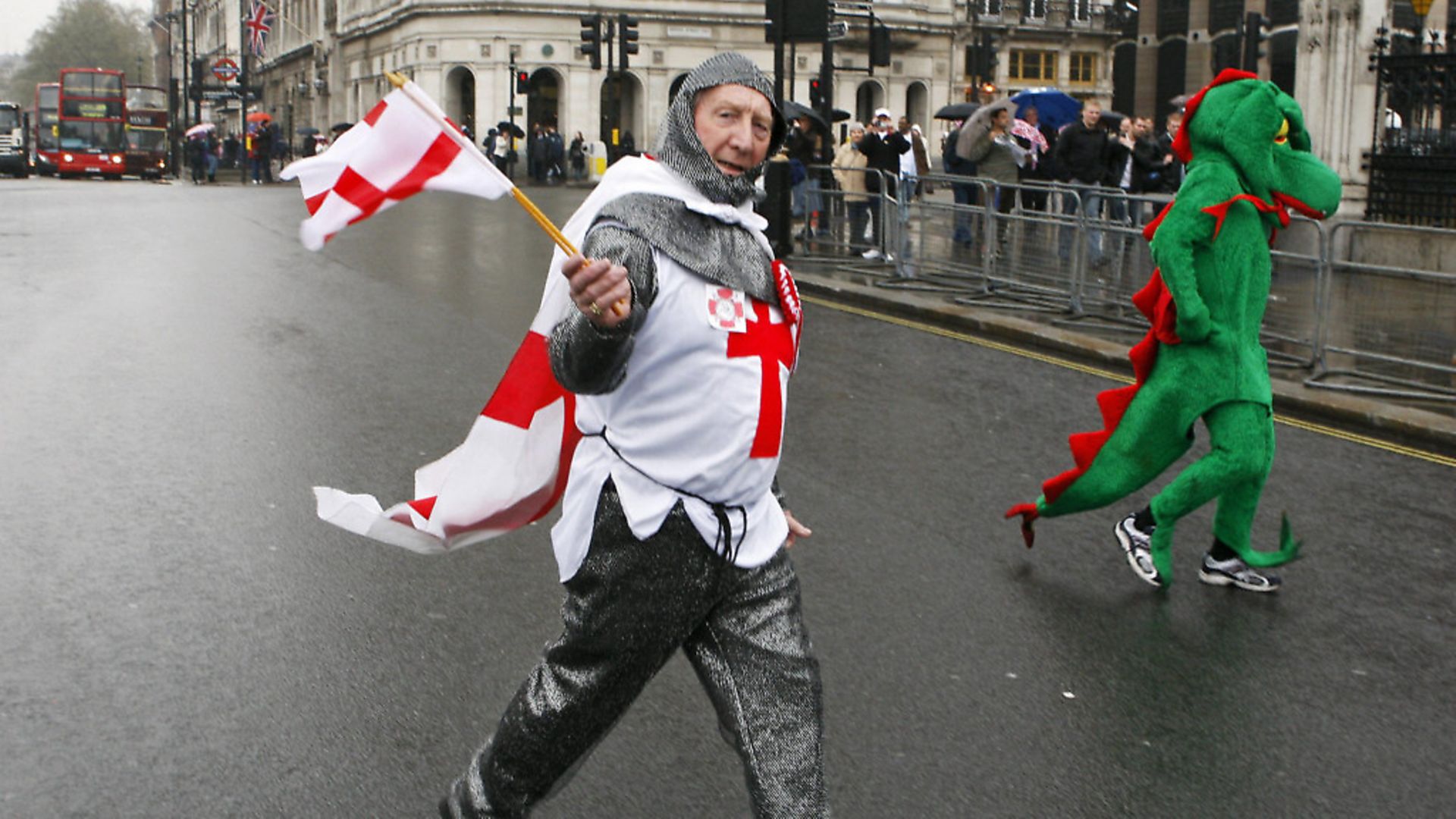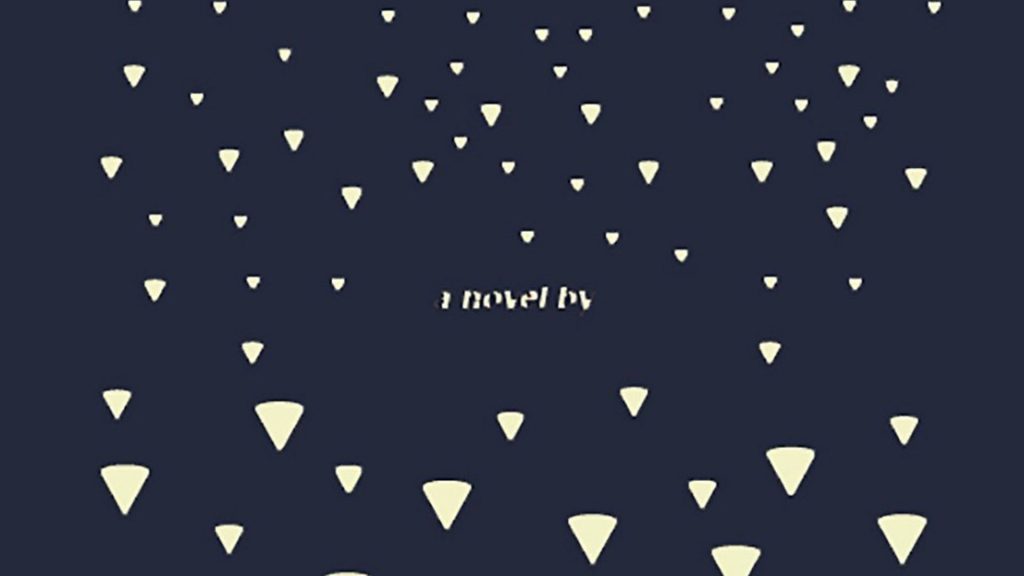
CHARLIE CONNELLY finds a true sense of patriotism in a collection of poems that tries to wrest that word back from nationalists.

One of the more frustrating aspects of the whole Brexit process is how Leavers have attempted with no little success to hitch themselves to a patriotic narrative, specifically that peculiar British strand of bellicose national pride that betrays a chronic deficiency of national self-esteem.
All countries have a pride in themselves, in their history, cuisine, landscape, sporting endeavours, the arts, all the separate aspects that come together to make up a nation, and it is just that: a pride.
It’s not a competitive thing. It’s saying, ‘this is what we have, we’re proud of it and we hope you like it too’. In Britain, however, the loudest branch of patriotism seems wholly uncomfortable with a national pride expressed simply on its own terms, instead it has to be seen through the prism of superiority.
We never saw ourselves as an equal member of the European Union because that didn’t fit in with this kind of exceptionalist narrative. Even the political rhetoric of pro-European British politicians was infected by this oddly flimsy sense of self-worth: we wouldn’t just be a member of the EU like any other, they told us, we would lead it. We had to show these other countries that we knew best because we were the best.
Despite this, our reputation for political pragmatism and clear-eyed thinking was well-earned and we doubtless were a reasonable and calm voice in discussions on the European stage – something that the last three years have managed to undo almost irrevocably – but that was a particular set of skills we brought to the table, just as other members brought their own experiences, ideas and mindsets too. As long as it was held back by this constant need for validation through comparison, Britain could never be a genuine team player.
It was always a loud voice but the referendum and what followed has shovelled that particular brand of patriotism vigorously to the fore until it’s become the default version: a chest-beating kind of patriotism that thrives on empty slogans and shouting. There’s no room for nuance here, it’s two-world-wars-and-one-World-Cup and Magna Carta and cheap acrylic knight costumes on St George’s Day – which should be a national holiday incidentally – and the first verse of the national anthem (but no further) and all is well in this scepter’d isle where we’re better than all the rest and they shouldn’t be allowed to forget it.
Any introspection that might have once existed in our national narrative has been removed from the discussion, toe-punted into the long grass by the bellowing triumphalism of Brexit. Words have become cheapened or even rendered meaningless entirely in this eruption of flag-waving and sloganeering.
It’s sometimes hard to remember that there is more to having pride in our nation than flags and shouting, that it is possible to be patriotic out of a deep-set love for one’s country without having to base it in a self-perpetuating philosophy of division. The true strength of a nation’s pride, not to mention national dignity, is demonstrated when expressed through unity, respect and mutual learning. Brexit has seen us shy away from that particular challenge in a flurry of bluster about taking back a control that we never lost in the first place.
This was all distilled brilliantly for me when I read The Europeans, David Clarke’s new collection of poetry just published by Nine Arches Press. National pride thrums from its pages, a pride based in a book of beautifully-crafted slices of life, experience and memory fired by a deeply-felt anger at where the country is heading.
Lincolnshire-born and now based in Gloucestershire, Clarke ranges widely across themes and subjects with the parts creating a coherent whole that left this reader with a renewed faith that the country isn’t necessarily in an irreversible spiral of baseless, self-defeating narcissism.
Many of the poems here first appeared in journals and magazines, yet rarely have I read a poetry collection with such a coherently-bound core, especially one that never becomes didactic or hectoring.
As the best poets do, Clarke distils his images and themes with just the right words to capture a moment, to have the reader finding themselves in the spaces between the lines where they’re drawn into thinking, reflecting and interpreting for themselves. It’s a sign of a collection of the highest quality that Clarke maintains this ability to evoke and provoke all the way through the book.
“The foolish show resolve, the barbarous their grit, and every shit defends the culture he does not understand,” he growls in Letter in March, and this barely restrained anger returns frequently through the book.
There is much we can recognise in The Europeans not least in An Exchange, which captures the experience of the school language exchange so perfectly you’re instantly transported back to your own, from how we’d take “punctual buses into reasonable towns” to our week spent sleeping in a bunk “above a snide Johann or a sporty Yves”.
It’s a poem that evokes what for most of us was the first time we’d been abroad as a peer rather than a younger member of a family unit, sitting together on the steps of monuments in town squares enjoying a new kind of camaraderie away from the classroom, exploring aspects of a foreign town that were oddly familiar, the record shops, the newsagents and the “precincts tiled with abstract forms”.
It was as if we were still in our own world but it had moved to a slightly different dimension, where chocolate bars had different names and all the crisps were covered in paprika.
The local kids seemed so much more mature and self-assured than us and their schools were always so much better too, modern, spacious and airy, without the combined aroma of boiled cabbage and disinfectant filling 40 watt bulbed corridors.
We’d come home to that, like Clarke, and find that we “forgot all we had learned by Monday’s class, yet dreamed for weeks of that other life”. For many of us this was our first independent experience of Europe, away from holiday resorts, in an everyday Europe where the daily rhythms were the same and our similarities and differences were thrilling to explore.
The Europeans isn’t all about Europe and Brexit, as Clarke demonstrates a wonderful talent for evoking nostalgia and emotion from unlikely sources much closer to home. There’s a joyously romantic paean to the speaking clock, for example, and a poem recalling working in a petrol station in which the reader can almost smell the diesel and feel the sandwich cellophane beneath their fingertips.
Airmail letters and photo booths have their own poems, aspects of an England far from St George and Shakespeare yet definitely a country we can all recognise whatever our politics.
Having said that, Brexit inevitably inspires Clarke to some of his best writing here. In The Snug, for example, he presents in 19 lines a near-perfect evocation of the malevolent mindset that lurks just beneath the cosy village pub, olde England image hijacked by a certain influential Brexiteer in particular who is addressed directly in brilliant caricature “in your better bookie’s coat. You lean against the ale-damp bar of England” where he’s “cooing words that stick in bigots’ throats” as “an army of nothing waits on your command”.
“This land is randy for the fear you evoke,” Clarke writes, as succinct a summary of where we are today as you’ll find anywhere and a concise damnation of that wolf-in-sheep’s-clothing patriotism that pretends to celebrate the best of Britain yet is consumed by the need to feel superior. This jolly hatred, this clubbable prejudice, the well-it’s-common-sense-isn’t-it sneer lent confidence and legitimacy by the Brexit vote and seized upon by its loudest cheerleaders.
Possibly my favourite among this collection is one of the longer poems in the book, Letter To George Gordon Byron. Clarke addresses the dead poet, bringing him up to speed on how “a puffed-up England sneers again at all that’s foreign, toffs are cheered by plebs they despise. Schemers promise the mob to ‘send them all back’, but smirk as they betray”.
Yet this is no simple polemic against the rising tide of bigotry. Byron is also filled in on the other side too, including the kind of Remainers who “curse the rabble who queered their cushy pitch, but what revolts them most is that the revolting dared to revolt”.
Brexit means the offspring of these people will “miss out on that spot with the Commission or (better) Deutsche Bank” and we are glad. If Byron was considering rising from the dead at any point soon, Clarke’s sharp-toothed missive should be more than enough to persuade him to stay blissfully dead.
This is a deeply patriotic book in the most positive sense of the word. Clarke’s country is a recognisable one of which we can all be proud, with all its quirks, flaws, nostalgias, delights and irritants. The Europeans brings into focus just how much of an angry nation Britain has become.
We struggle to accept that, in general, we are no better or worse as a country than any of our neighbours and until we learn to celebrate ourselves without having one eye over the Channel seeking reassurance that, yes, we are better than those foreign johnnies at literally everything, Britain as a nation will never be at ease with itself and the anger of Brexit will never dissipate.
“The country’s lonely with itself and howls for something, like a dog gone old in the head,” writes Clarke in the last stanza of the book’s final poem The Visions of Albion. “A raw demand, it pulls and pulls at its chain.”
There’s a howl in The Numbers Stations too, as a Cold-War era intelligence officer in eastern Europe steps outside “to brave the howl of Europe’s night”. Numbers stations could be picked up on short wave radio, apparently random lists of digits read out by a voice that was sometimes computer-generated, that were almost certainly coded messages being sent out to undercover operatives in the field.
The howl of Europe’s night could represent the weather, equally it could represent the ambient interference on the radio as Clarke’s teenage protagonist eavesdrops on his transistor under the bedclothes in a suburban town somewhere in Britain, an Adrian Mole sneaking into a John Le Carré novel.
It’s a poem that harks back to a time of the deepest division on our continent and reminds us not only how far a united Europe has come since then but also how words can cross boundaries and that even the strongest schisms are never impossible to overcome.
The Europeans, by David Clarke, is published by Nine Arches Press, price £9.99










